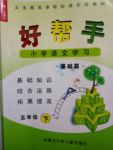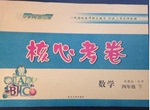题目内容
When I passed the entrance examination, my family ________ me ________ my success.
- A.celebrated; on
- B.congratulated; on
- C.celebrated; to
- D.congratulated; to
解析:
该题考查celebrate与congratulate的区别。congratulate的使用结构为congratulate sb.on sth.,意为“祝贺某人某事”,而celebrate的宾语不能是“人”,因此由第一个空后me可知应用动词congratulate,如果用celebrate,则应表达为celebrate my success。

 小学学习好帮手系列答案
小学学习好帮手系列答案 小学同步三练核心密卷系列答案
小学同步三练核心密卷系列答案It was the night before the composition was due. As I looked at the list of topics , "The Art of Eating Spaghetti (意大利面条) " caught my eye. The word "spaghetti" brought back the 36 of an evening at Uncle Alien' s in Belleville 37 all of us were seated around the table and Aunt Pat 38 spaghetti for supper. Spaghetti was an exotic (外来的) treat in 39 days. Never had I eaten spaghetti, and 40 of the grown-ups had enough experience to be 41 it. What laughing 42 we had about the 43 respectable method for moving spaghetti from plate to mouth. 44 , I wanted to write about that, but I wanted to 45 it down simply for my own 46 , not for Mr. Fleagle, my composition teacher. 47 , I would write something else.
When I finished it the night was half gone and there was no 48 left to write a proper composition for Mr. Fleagle. There was no choice next morning but to 49 my work. Two days passed before Mr. Fleagle returned the 50 papers. He said, "Now, class, I want to read you a composition, “The Art of Eating Spaghetti'. "
My words! He was reading my words out 51 to the whole class. 52 laughed, then the whole class was laughing with open-hearted enjoyment. I did my best not to show 53 , but what I was feeling was pure happiness, 54 my words had the power to make people 55 .
|
1. |
|
|
2. |
|
|
3. |
|
|
4. |
|
|
5. |
|
|
6. |
|
|
7. |
|
|
8. |
|
|
9. |
|
|
10. |
|
|
11. |
|
|
12. |
|
|
13. |
|
|
14. |
|
|
15. |
|
|
16. |
|
|
17. |
|
|
18. |
|
|
19. |
|
|
20. |
|